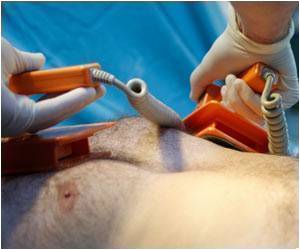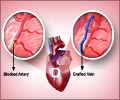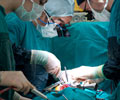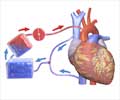Q: Who does Coronary artery bypass surgery?
A: A Cardiac Surgeon or a cardio-thoracic surgeon performs the surgery.
Q: How long does the procedure last?
A: The procedure lasts about 3 to 6 hours; more time is required when there is more number of grafts.
Q: What can I help my leg wound heal?
A: If you notice swelling in your feet or legs, keep your legs elevated using 2 or 3 pillows. Ankles should be higher than your knees and knees elevated than hips. This will allow the fluids to be reabsorbed and not form edema.
Q: What is my role in staying healthy?
A: You should remember that there is no cure for Coronary artery surgery and life style changes are definitely required to prevent worsening of disease and staying healthy. Stop smoking; increase your exercise slowly and steadily, follow a well-balanced diet and eat your medications regularly.
Q: Are there any restrictions in the daily activities?
A: All normal activities can be done. Your doctor would specify your restrictions, which may include lifting moderate to heavy weights up to 3 months after surgery, limit climbing stairs in the first 2 weeks, sports until you are comfortable without symptoms and driving when you are still taking pain medications.
Q: What should I do if my chest pain returns?
A: First of all, try to figure out if it is chest pain (angina) or pain in the incisional site. Angina will be usually similar to the pain prior to surgery and will increase or decrease with activity. Incisional pain will be a more constant pain and changes with position. If you are prescribed with Nitroglycerin, you can take that to relieve angina. If pain does not subside, you must go to a hospital’s emergency room as soon as possible or seek you doctor’s attention immediately.
Q: How are CABG and PCI different?
A: Percutaneous coronary intervention (PCI) and coronary artery bypass grafting (CABG) are considered revascularization procedures, but only CABG can prolong life in stable coronary artery disease.
Q: When will I fully recover from my Bypass Surgery?
A: Usually, full recovery happens 3 months after Triple Bypass Surgery.
Q: When is Stent and Bypass performed?
A: It depends on the doctor. The most important artery is called the left anterior descending artery (LAD). When this is blocked, bypass surgery is preferred. If LAD is not involved, then stent is the first choice.
Q: What is the difference between Bypass and Open-Heart Surgery?
A: The heart may or may not be opened during open-heart surgery. It could also include surgeries on the heart's arteries, valves, or muscles. Small incisions on the chest may be made during this procedure. Bypass surgery is performed when the blood flow via the arteries is obstructed.

























